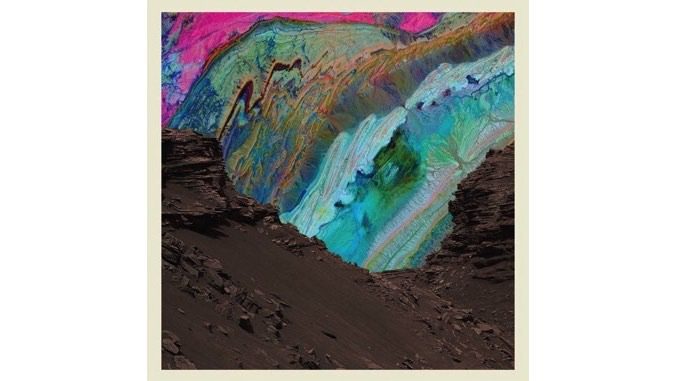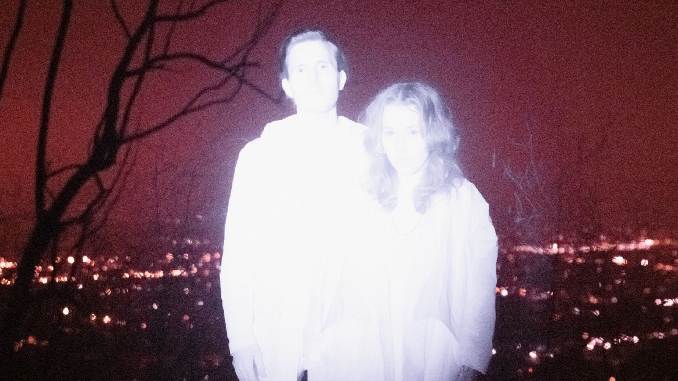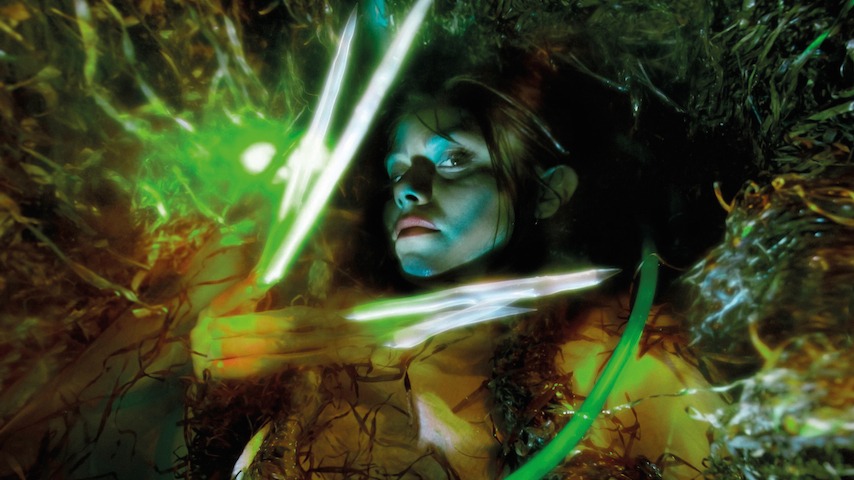All’s not well in the world, if you ask Alabama octet St. Paul & The Broken Bones. In fact, going by their new album The Alien Coast, they appear convinced that we’re on the precipice of obliteration. They aren’t happy about it. Frankly, they sound pissed off, and they’re blowing off steam by preaching end times-level fire and brimstone. It’s right there on the record’s opening track, “3000 AD Mass”: “Lord, can you hear me out there in the sky? / The fire, the brimstone / The fire, the brimstone.” Frontman Paul Janeway poses the query first gently, the way an erstwhile preacher might, and then with burning indignation, waiting for an answer that’s never going to come.
The Alien Coast makes the band’s intentions crystalline from the start, and what a start to make on their fourth album, especially at this particular moment in time. Maybe you would like relief from your music—a bit of reassurance that although things look bleak, one may still escape or find solace in a good song. You should avoid The Alien Coast if that’s the case. There’s not much reassurance to find here, which, for the sake of clarity, is a feature, not a bug; just as Adam McKay’s Don’t Look Up stares dead center at a cataclysm on the horizon without giving its audience any trace of hope, so too does The Alien Coast offer nothing in the way of consolation. The record’s message isn’t that this ruinous phase we’re stuck in shall pass. It’s that the best thing, or the only thing, to do is dance the night away while the sky falls.
There’s a kind of comfort in that logic, a surrender to events outside our control. We’d all rather not get blown up, but if that’s the inevitable outcome, then feting the end of the world with good music seems a fine way to spend one’s final hours. The Alien Coast is nihilistic in its substance, but impressive in its craftsmanship; it is a “new” record in literal terms, being St. Paul & The Broken Bones’ latest production, as well as in figurative terms, regarding the degree to which the band muck around with their sound. The group’s defining genre, soul, remains, but The Alien Coast treats soul as akin to a backbone: It’s a structural element on which Janeway and his cohorts—Jesse Phillips on bass, Browan Lollar on guitar, Kevin Leon on drums, Al Gamble on keyboards, Allen Branstetter on trumpet, Chad Fisher on trombone and Amari Ansari on saxophone—hang a handful of fresh ideas.
Funk makes an appearance on The Alien Coast, and psychedelia wrapped up in reverb, with occasional grindy industrial notes that, true to the album’s name, read as foreign to St. Paul & The Broken Bones’ style. Take “The Last Dance,” for instance, a pure bass-driven groove borrowed from the 1970s; without question, it’s the closest The Alien Coast gets to patting listeners on the back as if to say, “It’s alright.” “Lose yourself in a song that doesn’t make you want to cry / God knows we need it right now,” Janeway purrs, spelling out the record’s aesthetic in just two lines. This only matters if you happen to tune into his lyrics, but “The Last Dance” is such a danceable piece that you’re likely to miss what Janeway’s getting at because you’ll be too busy swiveling your hips.
Again: Ignorance is bliss. If you don’t know the comet’s coming, then it won’t bother you when it hits. That’s “The Last Dance.” Compared to “3000 AD Mass,” it’s a tonic. It’s the most joyful of the bunch next to The Alien Coast’s other songs, too, but not all of them mire in doom and gloom. “Popcorn Ceiling” whistles with the ache of an absent or perhaps unrequited love, Janeway’s expression of affection before the apocalypse; “Tin Man Love” stomps and struts over thumping bass notes, fat with distortion; the album’s title track reaches reverential heights, taking St. Paul & The Broken Bones’ full strength to experimental peaks by filtering a story of colonization through buzzing electronic tones.
The Alien Coast’s varied array of influences sound wholly unfamiliar coming from St. Paul & The Broken Bones, but they work. Whether they’re welcome is another question. No one wants to think about annihilation when they’re engaging with art to find respite from annihilation, but The Alien Coast’s fluctuations in tone are so rewarding to confront that they make the record’s message that much easier to absorb.
Bostonian culture journalist Andy Crump covers the movies, beer, music, and being a dad for way too many outlets, perhaps even yours. He has contributed to Paste since 2013. You can follow him on Twitter and find his collected work at his personal blog. He’s composed of roughly 65% craft beer.




